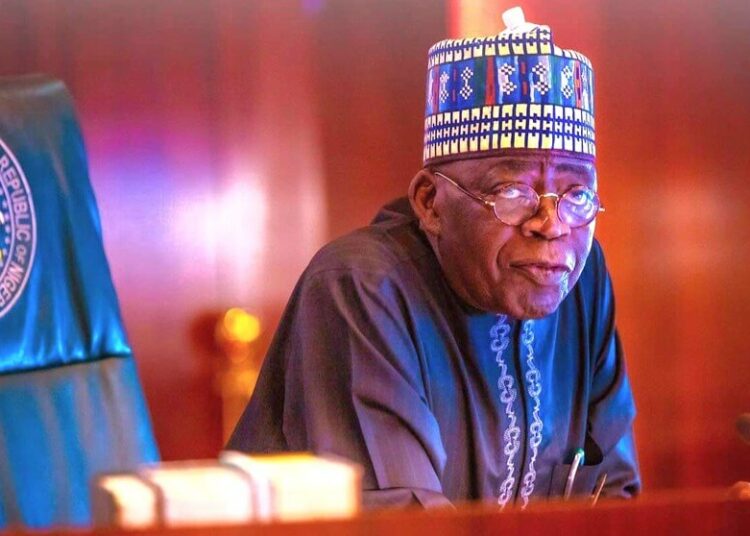On May 29, 2023, Alhaji Bola Ahmed Tinubu was sworn in as Nigeria’s democratically elected president after defeating all other contestants in the race for the top job. The 2023 election that ushered him into office, however, was perceived as producing significant toxicity and was considered as one of the most divisive in the country’s history. It was also notable for featuring three strong challengers, Atiku Abubakar of the People’s Democratic Party (PDP), Peter Obi of the Labour Party (LP) and Rabiu Kwankwaso of New Nigeria Peoples Party (NNPP). Hitherto, most recent elections have typically been two-horse races. President Tinubu subsequently won at the Presidential Election Tribunal and in the Supreme Court.
As his administration marks one year in office, Nigerians are left grappling with immense economic hardship, soaring inflation rates, and a lingering security crisis that continues to, not only claim many lives but also defy strategies mapped out to rein it in.
For most political observers, the President’s inaugural pledge to steer the nation towards prosperity has fallen drastically short of expectation, leaving some citizens disillusioned and others questioning the efficacy of his policies and leadership style.
The removal of the fuel subsidy and the floating of the Naira, touted as necessary reforms, have unleashed an inflationary storm, with prices of goods and services skyrocketing beyond the reach of the average Nigerian. The country’s headline inflation rate has soared to 33.69 per cent as of April 2024, eroding the purchasing power of most already impoverished citizens.
Unsurprisingly, this economic turmoil ignited widespread protests across states like Niger, Edo, and Ogun, as the populace vent their discontent with the largely unbearable cost of living. While President Tinubu maintains that these decisions were difficult but necessary, the absence of tangible relief measures left many questioning the true beneficiaries of such reforms.
The administration’s handling of the security crisis, a carry-over from the lack lustre President Muhammadu Buhari tenure, has been equally disappointing. Despite Tinubu’s assurances of a steadfast commitment to tackling the scourge, statistics paint a glum picture.
In the 10 months since his inauguration, a staggering 6,931 Nigerians have lost their lives to violence perpetrated by various non-state actors. This figure, while lower than the 8,356 casualties recorded during the first ten months of the previous administration, is a haunting reminder of the government’s failure to safeguard its citizens.
Moreover, the insecurity crisis has far-reaching consequences beyond the tragic loss of lives. Farmers, driven from their lands by the ever-present threat of violence, have been forced to abandon their livelihoods, exacerbating food shortages and contributing to the surging prices of essential commodities.
While the administration has implemented laudable initiatives such as the student loan scheme and executive orders aimed at bolstering revenue in the oil and gas sector, these efforts are overshadowed by glaring policy inconsistencies and a lack of coherent implementation.
In our candid opinion, Nigerians deserve a government that can articulate a clear vision and translate it into tangible results, not a series of disjointed measures that fail to address the root causes of the nation’s woes.
Furthermore, the bloated cabinet of 48 ministers, with only a handful deemed as performing satisfactorily, raises questions about the President’s ability to assemble a competent and effective team. The public perception of his cabinet as unviable is eliciting calls on him to shed the shackles of political patronage and prioritize merit over loyalty, assembling a lean and capable team that can deliver on his promises.
Even more haunting, in our opinion, is the failure of his administration to revive Nigeria’s ailing refineries. It from this perspective that there is a persistent move for him to encourage the establishment of modular refineries. It goes without saying that domestic refining capacity is crucial not only for reducing the nation’s reliance on imported fuel but also for creating employment opportunities and stimulating economic growth.
In the nation’s health sector, the rising costs of pharmaceuticals have placed essential healthcare out of reach for many Nigerians, underscoring the need for urgent intervention to ensure access to affordable medicines.
In our opinion, the much-touted ease of doing business is becoming a bit more complicated making it compelling for the President to put measures in place to prioritize creating a conducive business environment for, especially the small and medium enterprises, which are the lifeblood of any thriving economy.
As President Tinubu enters a new phase of his tenure, he must eschew empty rhetoric and platitudinous promises. Nigerians demand tangible results, policies that prioritize their well-being and a government that upholds the principles of transparency, accountability, and good governance.
In our opinion, the challenges facing Nigeria are daunting, but they are not insurmountable. With a resolute commitment to tackling insecurity, fostering economic growth, and prioritizing the welfare of the citizenry, President Tinubu can still redeem the appalling situation the nation is presently confronted with and inscribe his name in the annals of history as a leader who ushered in an era of prosperity for all Nigerians.
However, should he fail to heed the clarion call for change, his legacy will be tarnished, remembered as another squandered opportunity in a nation yearning for true transformation. We hope not.





